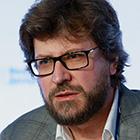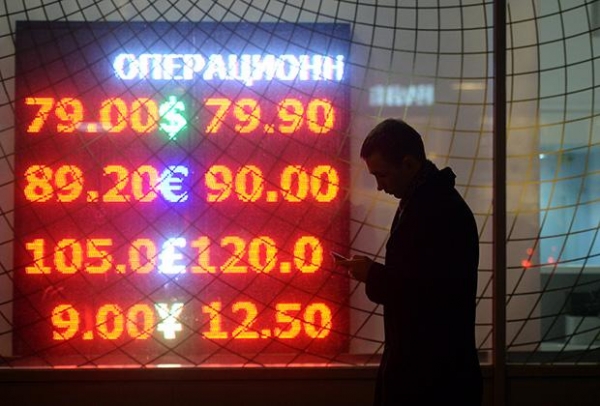
In the Crimean Federal University (KFU) held a lecture-seminar on “Russian interests in the conditions of growth of the various companies due to the influx of other cultures”, which made the chief editor of the magazine “Russia in global Affairs, Chairman of the Council on foreign and defense policy (SWAP) Fyodor Lukyanov and Deputy Director of the Centre for comprehensive European and international studies, NRU HSE Dmitry Suslov. “Ribbon.<url>” I recorded the main points of their reports.
The end of an era of dreams and illusions

Fyodor Lukyanov
Photo: Anton Denisov / RIA Novosti
Lukyanov: For the past quarter century, the world became more sophisticated, it became much less structured, manageable and uniform. The era of the cold war, with all its nasty components, was a unique period in the history of international relations, when the whole world system was maximally streamlined. The confrontation of the USSR and the United States, at its last stage took the form of senseless and dangerous arms race suddenly ended peacefully in the late 1980s.
Such an outcome of the cold war gave rise to great hopes and illusions — and in the Soviet Union, and many in the West sincerely believed in the possibility of building a new just world based on cooperation and not on confrontation. One of these idealists was Mikhail Gorbachev who set himself a noble and proper goal, but don’t understand how to achieve them in practice.
However, the end result did not match his expectations. The Soviet Union disappeared from the political map of the world, plunging the West in the shock of his sudden collapse. By the way, all of the 1990s in the United States continued a heated discussion about how consuming enormous budget resources, the CIA has failed to predict such a development.
The collapse of the Soviet Union was an unexpected gift to the West, which failed to use it effectively. In recent years, policy in many Western countries, increasing awareness of the elusive victory that they seem to be quick and bloodless victory in 1991. it is Necessary to recognize that not everything in the West in the 1990s came under the influence of euphoria from the collapse of the Soviet Union. Political scientist Zbigniew Brzezinski in his book “Loss of control”, published in 1994, was the first to formulate the risk of growing chaos and loss of control in world politics that happened in reality.

U.S. President Ronald Reagan and General Secretary CPSU Mikhail Gorbachev sign a Treaty on elimination of intermediate-range and shorter-range, 1987
Photo: Dennis Paquin / Reuters
The collapse of the bipolar system of the cold war awakened and set into motion a potentially powerful force in the countries of the former third world, which largely define the modern agenda. The current international situation is much more complicated any old comfortable and familiar schema, familiar to Western capitals. They understand that the former advantage is rapidly disappearing, but the ways in which Europe and the United States are trying to restrain him, only reinforce this trend. For example, recently President Barack Obama openly admitted that the project to create the TRANS-Pacific partnership directly aimed at containing China.
Than unique the current situation in the world? The simultaneous action of different power centers can be directed in completely opposite directions, but the environment in which they all exist, still the General and interdependent. In other words, no Russia will not be able to isolate itself from Europe or the United States from China.
Humanity is entering a new period of development, features of which are guessed already today. Model world, European (including Russian) of the device, as it was represented in the end of the last century, has exhausted itself. The main thing that is clear now — and the world, and individual countries and companies will be increasingly diverse, complex, heterogeneous.
The experience of Russia in the last 25 years, despite isolated achievements, does not give reason to believe that our country has reached on any sustainable path of development. Increasing military, political and diplomatic options in recent times should not reassure anyone.
With an impressive geopolitical weight Russia has a very weak economy — only two percent of the world. We need to bring into line the capabilities and ambitions, otherwise our country will face serious trouble. Now as far as we can judge, the current Russian leadership that clearly understands the threat, although it is still unclear what action will take.
One of the key problems of our country is that we have not completed that socio-political debate about themselves and their place in the world, which was developed in the late 1980s. the Period from 1987 to 1990 was the most interesting time from the point of view of the intellectual wealth of dialogue, interrupted by the collapse of the Soviet Union.
In the 1990s, Russian society struggled to survive, and all of the next decade was resting after this fight, taking advantage of a favorable external economic conjuncture. Again these questions returned to the public agenda in the early part of this decade. However, the nascent debate about the fundamentals of Russian identity torpedoed the Ukrainian crisis of 2014, and so essential to our society’s reflection was replaced by the next mobilization.

Photo: Reuters
Brave new world

Dmitry Suslov
Photo: hse.ru
Suslov: we are currently at the apogee of the transition from the failed attempt after the end of the cold war to build a unipolar world “new norm” or the “new normality” in the U.S., where the economy is no longer a limiting factor in international conflicts. The “new normal” includes the coexistence of several interacting with each other’s regional orders, the rules which do not apply to other political-economic space. Thus, the new world will be multipolar, not so much in the classical sense, and “mnogopoliarnym”, where Western institutions of global governance co-exist with their non-Western counterparts.
Today it is clear that based on the universal Western liberal rules the world “end of history”, which in the 1990s, wrote Fukuyama, was not held. The reason for this was the reluctance of the US and the West to give up its global leadership, as well as the apparent unwillingness of non-Western countries (primarily Russia and China) to integrate this us-centered order as a Junior partner.
This does not mean the end of the process of globalization itself, because in today’s world remain global interdependence and global challenges (international terrorism, global warming, the global financial and economic turbulence). But now globalization and global governance are changing your character, because the world is becoming fragmented and divided. This process takes place simultaneously with the struggle for the establishment of new rules of the game waged with the West, Russia and China.
There was a kind of cycle of globalization, which initially spurred the development of non-Western players (especially the BRICS), partially connected to the American world order by embedding in global value chains. This has resulted in global imbalances, with the US being the Issuer of world reserve currency, has become both a major debtor in the world, a booming China is a major global creditor.
Increased due to globalization and new centers of power have begun to claim a more solid status in the world order, to the observance of the principles of equality and respect for their interests from the West. Naturally it came into conflict with U.S. claims to global leadership. A natural consequence of the long smoldering conflict in the spring of 2014 is the Crimean crisis, when the United States was confronted with a major challenge. For the first time since the cold war Russian-American relations went into a state of great power confrontation and rivalry.
As the Americans are trying to maintain its global dominance in the emerging multipolar world? They tend usefully to integrate in a us-centric structure of non-Western players as a Junior partner. Now the United States is aimed at establishing, under the auspices of the new megaregional communities (Transtheoretical partnership, the Transatlantic trade and investment partnership), based on the new rules. These formations are designed to replace the old global structures like the WTO and at the same time to supply the developing non-Western States a choice: join them or become a pariah.
The result is now gradually formed two giant transcontinental political and economic enterprises: the us-centered “community of two oceans” and continental “community of greater Eurasia”, created around Russia, China, Iran, SCO, the EEU, the Economic belt silk road, and in the future, perhaps, and ASEAN.

Photo: Kirill Kallinikov / RIA Novosti
In addition to the new regional integration structures, whose norms and rules in the future we plan to extend to the whole world, to consolidate its global leadership and impact on the “naughty” countries the US is using another important instrument of unilateral economic sanctions. Any sanctions are most effective in the global world, when most States are interdependent from each other. That is why the US was critical to their sanctions against Russia joined Europe, the main economic partner of our country.
Why as effective instruments of weakening their enemies the United States now use economic sanctions? The answer is obvious — influence on Russia the traditional way, using military force, not due to the presence of our country’s nuclear potential, commensurate with the American. However, excessive use of the United States and its allies sanction mechanisms for deterring potential competitors is forcing those to enhance their economic independence from the West with the building of alternative financial institutions, with the departure from the dollar and the transition to settlements in national currencies.








